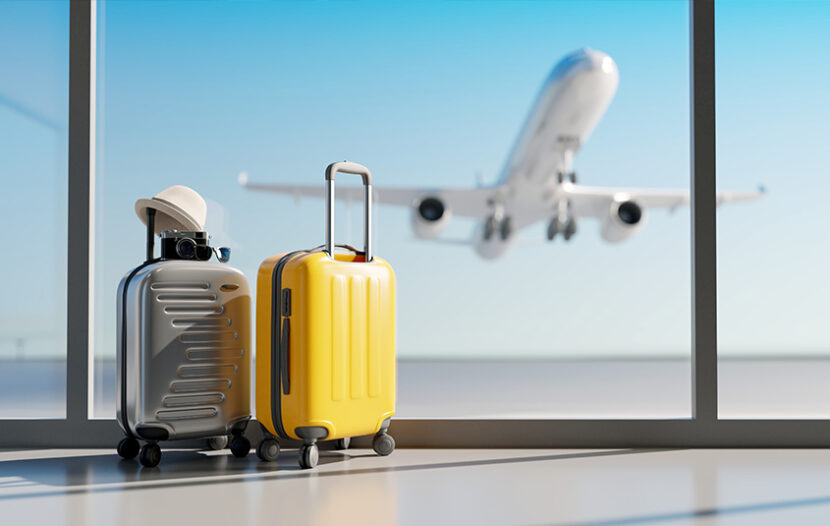TORONTO — The light at the end of the tunnel got a little brighter yesterday with the federal government’s announcement that fully vaccinated returning Canadians and permanent residents, along with other exempt categories of travellers entering Canada, are no longer subject to the 3-day mandatory quarantine, or the 14-day quarantine, potentially starting in early July.
The key word, of course, is ‘returning’. The travel advisory is still in place, so yesterday’s update doesn’t mean double-dose clients can suddenly take off on those long-awaited trips. This very first phase is just for returning travellers already outside the country.
But it’s a start.
Under the new policy, announced yesterday by Health Minister Patty Hajdu, returning travellers must still show proof of a negative PCR test pre-boarding, and do another PCR test upon arrival. And they must show proof of a quarantine plan, and stay in quarantine, until they receive the results of their PCR test. If it’s negative, they no longer need to quarantine.
Also yesterday, Dr. Theresa Tam indicated that the next step widening the quarantine exemption for double-dosed travellers could come when Canada gets closer to the 75% vaccination mark.
And is that 75% with one vaccine shot, or two? Canada’s one-dose vaccination rate is currently at an impressive 62%. For two doses, it’s 9%, though climbing with the second round of vaccinations now well underway.
We asked travel retailers if yesterday’s announcement, positive as it was, might create more confusion with clients who might think that the barriers to travel have been completely lifted.
“Most of Canada won’t have a second shot until August or September anyway. I am sure it will be open to all double vaccinated Canadians at that time. We are only booking Oct/Nov/Dec. 2021, and 2022, travel right now anyway,” Niche Travel Group owner, Faith Sproule, tells Travelweek.
“This is typical Government of Canada misinformation, where they make an announcement about a change in travel regulations without a definitive timeline or roadmap for industry recovery,” says Direct Travel’s Brian Robertson, President, Canada West.
The most important thing is that the process has started, says Flemming Friisdahl, founder and President of The Travel Agent Next Door.
“The key is they have started to lay out a plan, and we needed this,” says Friisdahl. “We would have preferred that we would not have to wait up to another two months, so let’s hope we get there faster. Presently we are administrating 400,000 doses a day in Canada. Let’s hope we can keep this up.”
Asked if TTAND agents are anticipating confusion from clients, Friisdahl said:
“Unfortunately there will always be confusion, reason being is most people only read or hear half of what is said then assume the rest. The major confusion will be the countries you want to go to and the requirements to enter the country. Will you need a COVID test before arriving? What if you had COVID, are you good? What if you had one but not two shots? So this will be the area of confusion and travel agents will have to make sure they are up to speed and comment all documentation to their customer with the requirements, because most clients count on us to know what is required.”
As for the 75% metric, Friisdahl said: “If that is the number the government better be ready to lift restrictions at 75% and not just keep us all locked up”, adding “we know that people who have only one shot are still more prone to severe illness, so I am 99% sure they are referring to having two shots.”
Wendy Paradis, President, ACTA, says yesterday’s announcement was welcome news particularly because it shows that the government is finally looking at their own expert panel report, which contains several recommendations that ACTA has also been asking for.
“However, we hope that more of the panel’s recommendations are enacted quickly to salvage the summer travel season for Canadians and the tourism and hospitality industries,” says Paradis.
“The government has signalled it may open the border to more traffic – likely tied to vaccinations also. But without significant reductions in the quarantine requirements, the travel advisories and other restrictions, the travel industry remains largely in limbo.
“The big question is what will be accepted as proof of vaccine and this brings up the question of some sort of vaccine passport or official record. We look forward to the details which have not yet been made clear.”
Vaccine passports are on the agenda for the G7 Summit in the coming days. Also yesterday, Minister of Intergovernmental Affairs Dominic LeBlanc said the federal government is “working out details” on vaccine passports, and that “border agents will have everything they need.” He also said the federal government is working with the provinces on a long-term solution for vaccination certification.
Industry groups including the National Airlines Council of Canada (NACC) and the Canadian Travel & Tourism Roundtable, came out with statements in the wake of yesterday’s announcement. Here’s a look…
“Canadians are doing their part in getting vaccinated; now it is time for the federal government to provide clear, timely, and safe guidance on reopening Canada for travel. Though [the June 9] announcement addresses quarantine measures for fully vaccinated Canadians, it does not address border measures, quarantine restrictions for partially vaccinated Canadians and fully vaccinated foreign nationals, and ongoing testing requirements. With vaccinations rising and case numbers going down, we must pivot to forward-thinking policies, rooted in science, and begin looking at things like reopening the border.”
– The Canadian Travel & Tourism Roundtable
“As vaccination programs increase rapidly and jurisdictions around the world provide consumers and industry with a clear path forward, we must do the same. Countries that successfully implement a science and data – based testing and quarantine policy will not only protect public health, they will also drive their overall domestic recovery and take jobs and investment from countries that do not. We must get moving now.”
– Mike McNaney, President and CEO, NACC

